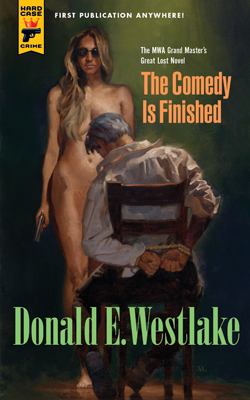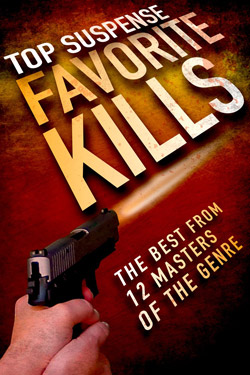I will be tweaking THE WRONG QUARRY today, doing final rewrites, and I hope “shipping it” (i.e., e-mailing it) to editor Charles Ardai) today. It was written largely in two frenzied weeks, although my fourteen-day-no-day-off stay in the bunker was preceded by a week of prep and plotting, and now a day (or two) of tweaks and rewrites.
A writer my age should probably not undertake to write a novel in this fashion, working till 1:30 a.m., rising at 7:30 a.m. and starting in again, before going down for orange juice and English muffin. But I have always written Quarry novels in two to three weeks (with the exception of the first one, which took six months) because they are stream-of-consciousness affairs that require me to live inside the story (and Quarry’s head) for the duration.
The story is set in the early ‘80s, and falls into the Quarry sub-category of our hero helping the target of a hit contract. It takes place in a small town in Missouri, during the off-season of its tourist industry. This may sound like a fairly ordinary Quarry set-up, but I assure you it’s wilder than Mr. Toad’s ride. In fact, Barb gave me the best Quarry review ever: “Who is this twisted man I’ve been sharing my bed with?”
This will be, since I obviously have work to do, a brief update. Barb and I saw SIDE EFFECTS, the Steven Sonderbergh thriller starring Jude Law, Rooney Mara (American GIRL WITH THE DRAGON etc.), and Catherine Zeta Jones. Very good twisty piece of work, sort of like ‘70s DePalma but slightly less overt in the sex, violence and style department. Like PARKER, a throwback to kind of grown-up genre piece that the theaters used to regularly offer.
My anti-Super Bowl rant last week got some interesting comments, particularly Mike Doran aptly pointing out that my lack of interest in pro sports may be related to my living outside a metro area. No big sports franchises in Iowa. Good point. The U of I’s Hawkeyes are worshipped in this state. My father fetishitically bought black-and-gold everything, including a Cadillac once.
Odd postscript to my sports “bloviating” (as one commenter termed it): I often love sports movies and sometimes books. Mark Harris’ Henry Wiggins novels are among my favorite novels. DAMN YANKEES is high on the list of my favorite movie musicals. And I’ve already written here about TV’s FRIDAY NIGHT LIGHTS, one of my favorite shows.
Ah yes, I am an enigma wrapped in a riddle. If an occasionally bloviating one.
Here’s a terrific early COMPLEX 90 review from Ron Fortier, an excellent writer his own self.
And here’s a terrific review of my new collection (as complete as possible) of the MIKE HAMMER comic strip.
My friend (and great excellent crime writer) Ed Gorman was kind enough to post this generous review of SPREE, the final Nolan (to date, anyway).
Just in time for the publication of the third Jack and Maggie Starr (SEDUCTION OF THE INNOCENT), here’s a nice review of the first one, A KILLING IN COMICS.
Speaking of which, here’s a fun review of SEDUCTION from a gaming site.
And to celebrate finishing THE WRONG QUARRY in 2013, here’s a good review of the 1976 Quarry novel, QUARRY’S LIST.
M.A.C.

